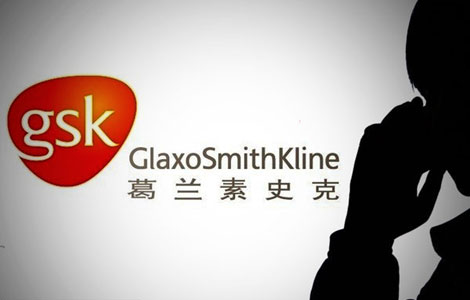Backbone for further development
Updated: 2013-07-12 07:25
By Hu Angang (China Daily)
|
||||||||
Chinese enterprises have collectively managed to break the long-term global monopoly held by the multinationals
Economic competition between nations is often the competition between enterprises, and, of course, it is the multinational companies that feel the impact of international competition among big powers in most cases. However, in the case of China, it is clearly competition between China's "national champions" and the multinational corporations from the United States, Europe and Japan.
During the past decade, Chinese enterprises have collectively managed to break the long-term global monopoly held by the multinationals and this has been made possible by the pioneering efforts of Chinese State-owned enterprises.
In 1989, Bank of China became the first mainland company to enter the Fortune Global 500 list. By 2002 there were 11 Chinese firms, and since then the number has increased steadily. Last year, more than 70 mainland enterprises were on the list, with 66 of them State-owned and State-holding enterprises. Nearly 42 of them were enterprises overseen by the State-owned Assets Supervision and Administration Commission. There is no doubt that the collective growth of Chinese enterprises in recent times has been largely fueled by State-owned enterprises.
The total revenue of China's Fortune Global 500 companies has surpassed the total revenue of Japanese companies on the list to become the world's second largest after the US. The rise of State-owned enterprises has also been consistent with the economic growth of China, reflecting the strong correlation between the two.
The strong economic growth has also led to the creation of several large Chinese enterprises. Since 2011, the proportion of revenue earned by Chinese enterprises in the Fortune Global 500 list has exceeded the proportion of China's GDP in the world's total GDP. It can be predicted that both proportions will continue to rise rapidly together.
If China's share of world GDP surpasses the GDP of the US by or after 2020, then the number of Chinese enterprises in the Fortune Global 500 is likely to exceed that of the US, including more than 100 State-owned enterprises from various sectors.
The more powerful and competitive group of Chinese State-owned enterprises has undoubtedly been the "national backbone" of economic growth.
In a market economy, enterprises are often the most important source of economic vitality, the core of technological innovation and the impetus for social progress. The rise and the prosperity of an economy essentially depend on the growth and maturity of a number of competitive enterprises and a group of hard-working, intelligent and diligent entrepreneurs. Chinese State-owned enterprises have adapted to the requirements of socialized mass production and marketization and formed a highly efficient and flexible operational mechanism through the establishment of a modern enterprise system. This shows that Chinese enterprises and modern Western enterprises have much in common.
State-owned enterprises are not only modern enterprises, but also socialist enterprises, which is the biggest difference from capitalist enterprises. China's State-owned enterprises fully embody the national advantage, political advantage and organizational advantage of socialism. As socialist enterprises they have four distinct advantages - State-owned capital, State support, the organizational advantages of the Party, and wholeheartedly relying on the workers.
The first two advantages are external strengths, while the latter two are internal strengths.
Chinese State-owned enterprises enjoy a corporate culture which is largely based on traditional culture. Although these enterprises have learned from their multinational counterparts, their corporate culture is still largely different from the Western one.
The Western corporate culture emphasizes individualism, while the State-owned enterprise culture focuses more on harmony and collectivism. A good business model not only creates material wealth, but also creates spiritual wealth. Chinese corporate culture reflects this spiritual wealth, which in turn is a form of internal and external soft power.
China, being a huge economy, needs large, internationally competitive State-owned enterprises. This is the only way that China can ensure that its enterprises enjoy a strong position amid fierce international competition.
So improving the competitiveness of State-owned enterprises, and promoting and deepening reform of State-owned enterprises are necessary for China's economic development and social transformation and an important driving force for promoting sustainable and stable development of the economy and society.
The prosperity of an enterprise leads to the prosperity of a country; hence the strengthening of enterprises leads to the strengthening of a country. From the point of view of China, the essence of this is the rise of State-owned enterprises. From the point of view of the world, the rise of China's enterprises has great significance for the developing countries at least.
The author is the dean of the Institute of Contemporary China Studies, Tsinghua University.
(China Daily USA 07/12/2013 page15)

 BASE jumpers celebrate their annual event
BASE jumpers celebrate their annual event
 S Korean students mourn Chinese victims of air crash
S Korean students mourn Chinese victims of air crash
 Constructive mood at talks
Constructive mood at talks
 Masks reveal unknown worlds
Masks reveal unknown worlds
 Pathfinder pianist
Pathfinder pianist
 Surviving students hosted by consulate
Surviving students hosted by consulate
 China investigates GSK executives for bribery
China investigates GSK executives for bribery
 China, Russia complete 3-day joint naval drill
China, Russia complete 3-day joint naval drill
Most Viewed
Editor's Picks

|

|

|

|

|

|
Today's Top News
Saudi princess charged with US human trafficking
Asiana takes out apology ad in Chinese media
Asia spending too little on poor: report
Constructive mood at Sino-US talks
China, Russia consider increasing naval drills
No mechanical trouble on Asiana
More Americans favor immigration
Increased cooperation brings benefits
US Weekly

|

|






